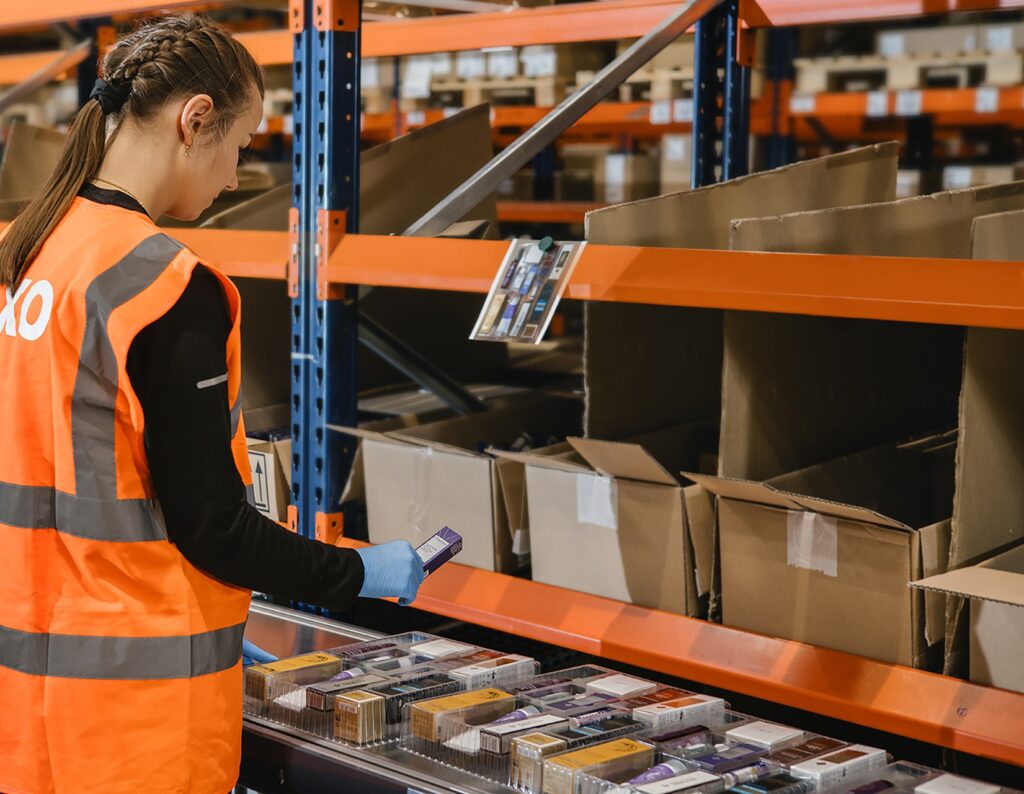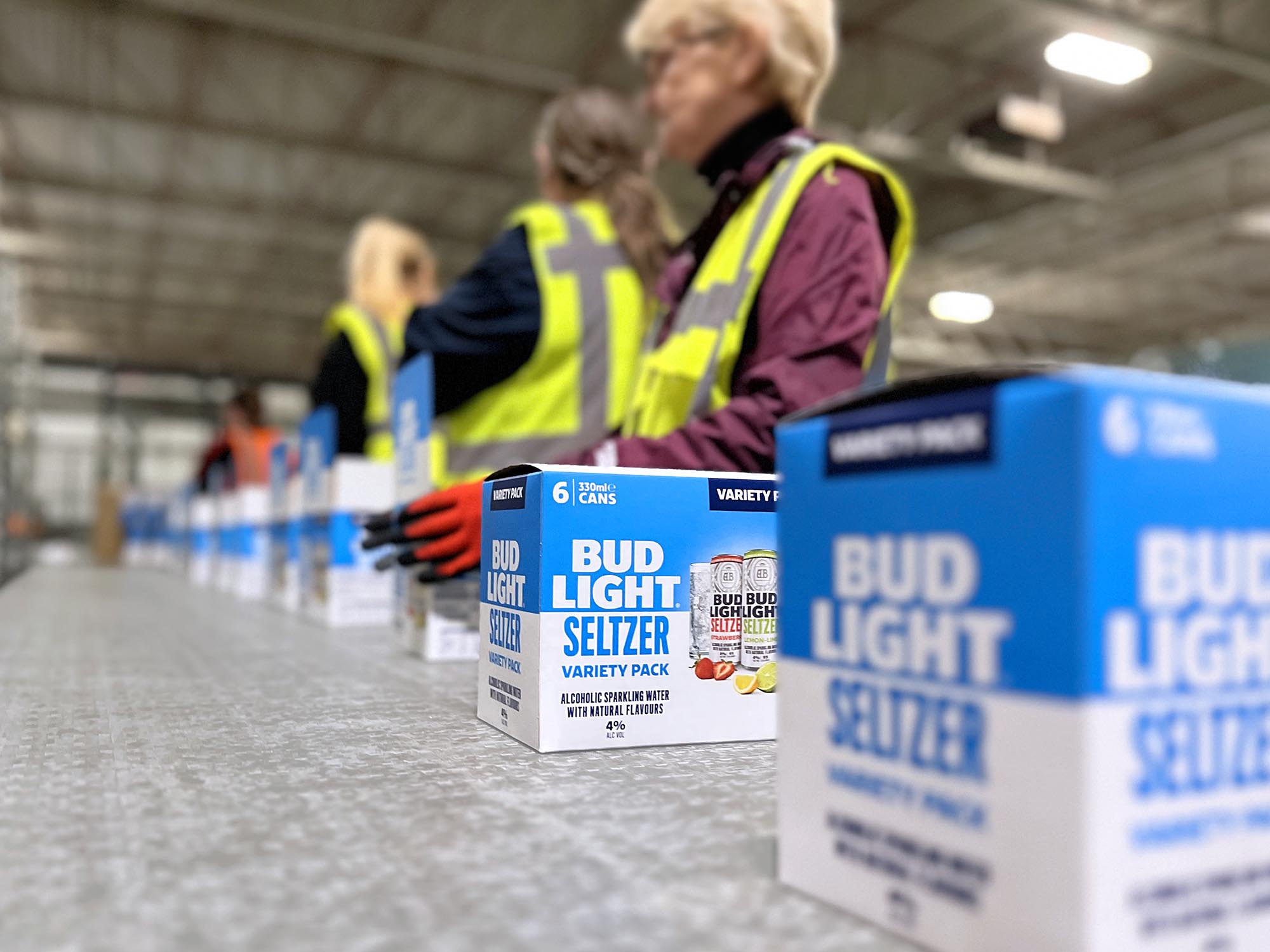The Rise of Value-Added Services
25th July 2025

Logistics is no longer just about transport, writes Emma Verkaik, CEO of the BCMPA – British Association for Contract Manufacturing, Packing, Fulfilment & Logistics.
The role of logistics within the wider supply chain has evolved dramatically in recent years. Once viewed primarily as the movement and storage of goods, today’s logistics landscape is increasingly defined by its value-added services (VAS) – from co-packing and kitting to quality control, retail-ready displays, and sustainable packaging solutions.
This shift is not just incremental. It represents a structural change in how supply chains are built and managed and reflects the pressures brands face to meet rising consumer expectations, respond to fast-changing retail environments, and deliver on sustainability goals. Across the BCMPA membership, value-added logistics is no longer a secondary service, it’s the core of modern supply chain strategy.
Flexibility is the New Standard
Today’s supply chains must be built for agility. Lead times are shorter, demand more volatile, and customisation increasingly expected. Whether it’s assembling promotional displays for seasonal campaigns, reformatting packaging to meet retailer requirements, or adapting fulfilment to support both B2B and D2C channels, logistics providers are being asked to do more, and faster. BCMPA member Charles Kendall Freight highlights this trend: “Logistics are no longer isolated from other business functions; it’s becoming embedded in the entire contract manufacturing lifecycle – from raw material sourcing to final-mile delivery,” says Andy Gilpin. This sentiment reflects a broader trend across the industry, where logistics partners are taking on a more consultative, problem-solving role.
And this adaptability extends beyond co-packing. Kinaxia Logistics recounts a project where they helped a major client transition from plastic to cardboard packaging with a child-proof locking mechanism requiring highly precise dimensions. The company’s engineering team designed custom jigs lined with Teflon to achieve the exact specifications, showing how technical expertise supports evolving product needs.
Quality Control and Enhancing Customer Experience
Increasingly, logistics providers are being entrusted with product quality assurance to maintain brand reputation and retail standards. Third party logistics provider and BCMPA member, Kammac shared a recent example: “A company supplying soft furnishing products for a major retailer needed support with quality control due to issues like loose threads and contamination. We took on the project and within a four-week timeframe were QCing 45,000 single items,” says Peter Edwards, Kammac’s Marketing Business Partner. This illustrates how value-added logistics is extending into product inspection and rework, ensuring items meet customer and retailer expectations before they reach stores.
Charles Kendall Freight also reinforces this point through its tailored fulfilment solutions: “We successfully picked and dispatched on average 8,000 B2C orders monthly, hitting the agreed 98.5% KPI of picked and delivered within 48 hours of order receipt,” says Site Manager, Andy Gilpin. Its approach includes managing up to 20 different items per box, carefully arranged to maintain brand integrity, showcasing the precision and attention to detail demanded by modern logistics.

Sustainability Driving Operational Evolution
Sustainability is now a core driver of logistics strategies. Kammac stresses the growing importance of environmental credentials: “Sustainability has become a big one for us with consumer expectations for greener products and more sustainable supply chains. We’ve seen this within business tenders requiring ISO 14001 (Environmental Management System) Certification,” says Peter Edwards.
GXO echoes this commitment: “Through an intensive review of materials in the supply chain, GXO was able to enhance the recyclability of Virgin Media O2’s packaging and reduced single-use plastic by over 97%,” adds Nila Patel-Cooper, Business Development Manager. Its approach includes eliminating adhesives from labels and adopting water-based application methods, reflecting the broad range of innovations helping brands meet their ESG targets.
Integration and End-to-End Supply Chain Solutions
Logistics is increasingly integrated into broader contract manufacturing and packing operations, with providers expected to deliver seamless end-to-end solutions. Warren Hill, Business Development Manager at Kinaxia explains: “Clients now expect contract manufacturers and packers to offer integrated solutions that include inbound logistics, warehousing, inventory management and outbound distribution all under one roof.” Its established contract packing operation combined with a national logistics network supports this integrated approach. Similarly, Kammac points to the value of global partnerships: “We see partnerships continuing to grow, and for us that means providing end-to-end solutions through our global network as part of the Elanders Group,” says Edwards.
Towards Strategic Collaboration and Innovation
The examples from BCMPA members collectively indicate a shift from transactional logistics services to strategic collaboration. Flexibility, sustainability, quality control, and integration are no longer optional but fundamental to meeting the complex demands of today’s supply chains.
GXO’s response to evolving market dynamics, including downsizing inventory and favouring shared-user environments, is an example of how providers are adapting to stay agile, efficient, and competitive. Brands are looking for supply chain partners who can adapt quickly, whether that means scaling capacity for seasonal peaks, supporting D2C fulfilment, or integrating sustainability into every step of the operation. “It’s no longer just about speed or cost; it’s about being agile, insightful, and aligned with the brand’s goals,” says Nila Patel-Cooper.
At the BCMPA, we’re seeing consistent growth in demand for value-added logistics across many sectors including food and drink, beauty, personal care, pet care, and homewares. As supply chains become more complex, our members are doing more than simply moving goods; they’re providing flexible, end-to-end solutions that help brands respond to challenges, meet evolving expectations, and deliver outsourced value at every stage.
similar news

